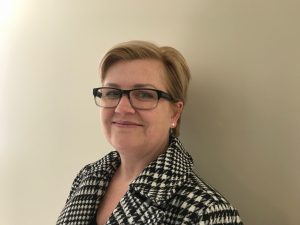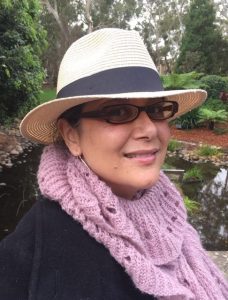Imagine your life without a safe place to sleep each night. How do you think that would affect your mental health? There is a lot of misconceptions about what homelessness looks like and we need to break those down as we talk about mental health and having a place to live. In this episode you'll hear what it's like to live without housing security and about some of the amazing work being done in NSW to help people out.
Guest speakers
Tamara Pallos started her career as a lawyer but then retrained as a counsellor. She was involved in frontline mental health service delivery, mostly in community sector organisations such as Relationships Australia, for around ten years. After that, Tamara made a transition into policy work, with a human services focus. She has held Principal Policy Officer roles at the Royal Commission into Institutional Responses to Child Sexual Abuse and at NSW Health. Tamara currently works as a Senior Project Officer at Homelessness NSW, a peak, not-for-profit organisation that works with its members to prevent and reduce homelessness across NSW. One focus of Tamara’s role is improving how mental health programs and services support people experiencing homelessness.
 Penny Dordoy is the Head of Community Services for Housing Plus in the Central West of NSW. She has oversight of homelessness, domestic violence services, support services for people exiting the prison system, and services to support people into employment and out of social housing.
Penny Dordoy is the Head of Community Services for Housing Plus in the Central West of NSW. She has oversight of homelessness, domestic violence services, support services for people exiting the prison system, and services to support people into employment and out of social housing.
Penny is active in her community, lobbying regional business, service providers and community to acknowledge and understand domestic violence and homelessness issues and to take action to support the most vulnerable. Penny has led a number of community projects to tackle domestic violence and in 2019 was selected to represent rural and regional women as part of the NCOSS delegation to attend the 62nd Commission of the Status of Women in New York.

Talie Star is a Speaker/Singer/Songwriter who is an advocate for Domestic and Family Violence NSW (DVNSW), a consultant with Homelessness NSW and PIAC/Street Care. She is passionate about ensuring the voices of people with a lived experience of Domestic and Family Violence and Homelessness are heard by government and other decision-makers, and challenges systems that continue to promote Power & Control structures.
Talie currently facilitates the Domestic and Family Violence (DFV) Lived Experience Group with Homelessness NSW (which supports women with an experience of homelessness and DFV to conduct advocacy projects) she is part of the Voices for Change Project with DVNSW and is a facilitator for the Love Bites Programme in schools (using her background in Youth work and counselling) to assist young people to understand healthy relationships and prevent violence. She is a member of Homelessness NSW’s Policy Council and on the steering committees of Voices For Change and Love Bites.
Talie’s love of the arts sees her creatively bringing the issues surrounding DFV & homelessness to life in songs, performance poetry, art and workshops/seminars. She is committed to empowering people to discover their voice within, to change their inner dialogue and embrace all that they were made to be. In recognition of her outstanding work in promoting the voice of people with a lived experience of homelessness, Talie was awarded the NSW SHS Sector Consumer Achievement Award in 2018.
Background
Homelessness can affect men, women and children from a wide range of backgrounds. According to the 2016 Census, more than 116,400 adults and children in Australia were experiencing homelessness [1]
Homelessness is more than just being without shelter. There are three different types of homelessness, including:
- ‘Primary homelessness’ is when people lack conventional accommodation, such as living on the streets, sleeping in parks or cars, or squatting in buildings and improvised dwellings.
- ‘Secondary homelessness’ is when people are forced to frequently move from one temporary shelter to another, for example, emergency accommodation or couch surfing.
- ‘Tertiary homelessness’ is when people live in accommodation that falls below minimum standards, for example, boarding houses or caravan parks
[1] Australian Bureau of Statistics. Census of Population and Housing: Estimating homelessness, 2016
Resources
MyHousing Online Services offers convenient online tools for FACS housing clients 24 hours a day, 7 days a week. You can apply for housing assistance, access your housing information and make payments online.
Aboriginal Housing Office offers housing information for Aboriginal and Torres Strait Islander people, including housing applications and home ownership.
Help Services
If you or someone else is in immediate danger, call 000 or go to your nearest hospital emergency department.
If you’re concerned about your own or someone else’s mental health, you can call the NSW Mental Health Line 1800 011 511 for advice.
Having a tough time and need someone to talk to right now? The following services are there to listen and help you out. They are confidential and available 24/7.
- Lifeline – 13 11 14
- Suicide Call Back Service– 1300 659 467
- MensLine– 1300 78 99 78
- Kids Help Line (for young people aged 5 to 25)– 1800 55 1800
- Domestic Violence Line – 1800 656 463
- 1800 RESPECT – 1800 737 732
Link2home – 1800 152 152
Link2home provides information, assessments and referrals to support and accommodation services across NSW. This service is available 24 hours/7 days, however, referrals can only take place from 9 am to 10 pm.
Ask Izzy is a website that connects people in need with housing, meals, financial help, family violence support and counselling services across Australia. If you are on the Telstra mobile network, you do not need to have credit for access to free wifi to use the site.
NSW Government Service Directory
Find services that help support people experiencing homelessness across NSW.

